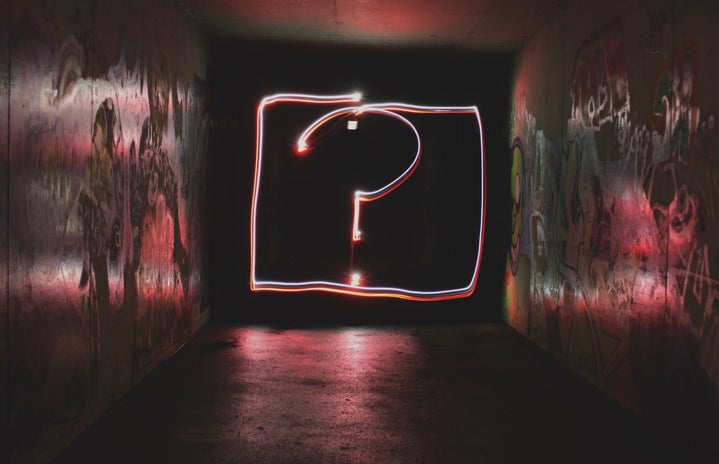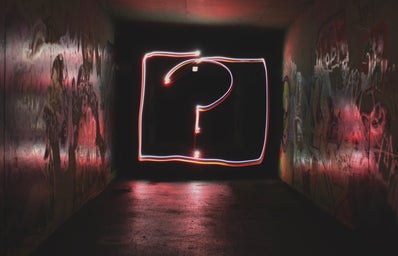For those of you who know me, you’ll know that when asked I will usually resort to describing myself as queer. As someone who is not only actively questioning their gender but also suffers from General Anxiety Disorder, this causes me a good deal of stress. For one thing, not everyone is in agreement about whether or not the word is still offensive, as many a Reddit troll will tell you. For another, a lot of people believe that having such an ambiguous label is as good as having no label at all.
I think that in an ideal world, labels would be redundant. I don’t think it’s appropriate for individuals to be grouped into classes based on some abstract feature that they’re all meant to share. Largely, because it’s impossible for these features to present themselves in exactly the same way in different people. If you’ve ever read any of Judith Butler’s work (which I highly recommend you do) you’ll know that names used to signify a collective often do more to exclude people than to give them a sense of community.
As an example, some of the more common qualifiers for being a “woman” include:
- Being in possession of two X chromosomes
- The capacity to carry young
- Producing egg cells
- Being in possession of a vagina
All of the above are problematic for a number of reasons:
- Some women are trans or intersex and therefore do not possess a vagina, two X chromosomes, or the capacity produce eggs
- Some women who are in possession of a vagina, two X chromosomes and the capacity to produce eggs are not able to conceive children
- There are a number of people who identify as women, who do not meet all the above “criteria”
- The association between any of the above and being a woman is a wholly subjective human construct
At some point in the history of the universe, someone took a look at their genitals and those of the friend next to them and decided that one thing signified “male” and the other signified “female”. Regardless, the point I want you to take home is that gender and sex, as concepts, are a load of gobbledygook and as a society we should make a collective movement towards embracing individualism and the unique characteristics of each person.
If you’re not queer, this is confusing. Have you thought about this in great detail before? What does this mean for the way you and the people around you perceive yourself? If you’re queer, well…it’s still confusing! What should you be calling yourself? Is there an objective way to be perceived by today’s societal norms?
Well, theydies, and gentlethems I present to you: The Infinite Gender Cube (A spiritual successor to my own previous theory, The Two-Dimensional Gender Chart, as explained by @nowitslauren): a relatively accurate way of pinpointing your gender identity in an easily translatable medium based on three qualitative axis, each of which has a range between -100 and 100.
In case you haven’t watched the video, the three axis are as follows:
- X = Self – Your sense of self! Do you feel like to adhere more to contemporary standards of man or woman?
- Y = Expression – What kind of style do you have? Is it quintessentially masculine or feminine?
- Z = Saturation – Do you associate very strongly with ideals of gender, or do you fully reject gender as a concept?
My mind has been blown! The IGC is a useful for separating the more arbitrary aspects of gender and identity, while at the same time embracing the individuality of each person it describes. If you’re not sure about who you are yet, or if your identity is more fluid, the cube allows for movement between multiple points depending on what you feel like.
I won’t lie and say there aren’t flaws in the theory though. The cube still conforms to contemporary stereotypical ideas of what the terms “man”, “woman”, “masculine” and “feminine” are. It’s disappointing that the only way to to transpose you identity onto a scale for people to recognise is still reliant on what can be outdated, subjective and collectivised terms. At the very least, I think it’s representative of progress towards a world where hopefully people will care more about people as humans and not reduce us to collectives.
And yes, while the cube is entertaining and light-hearted mode of learning more about yourself, I think it offers validation in a way that a lot of young queer people need. I wish I’d known about the infinite and all equally real identities out there, not only might I have been less of an asshole, but I probably would have felt a lot less uncomfortable with myself (I’ll leave it to you to decide if there’s a correlation in there, but just so you know the answer’s probably yes). You don’t have to spend hours falling down Wikipedia rabbit holes searching for a label that fits anymore. Yes, finding a way to make yourself legible to the your loved ones and your community is important, but I don’t think you should compromise who you are by contorting yourself into a jigsaw piece just to fit the space you’ve been allotted.
Ultimately, if it’s that important to you, and you can’t find a label that fits, then why not make one of your own?


